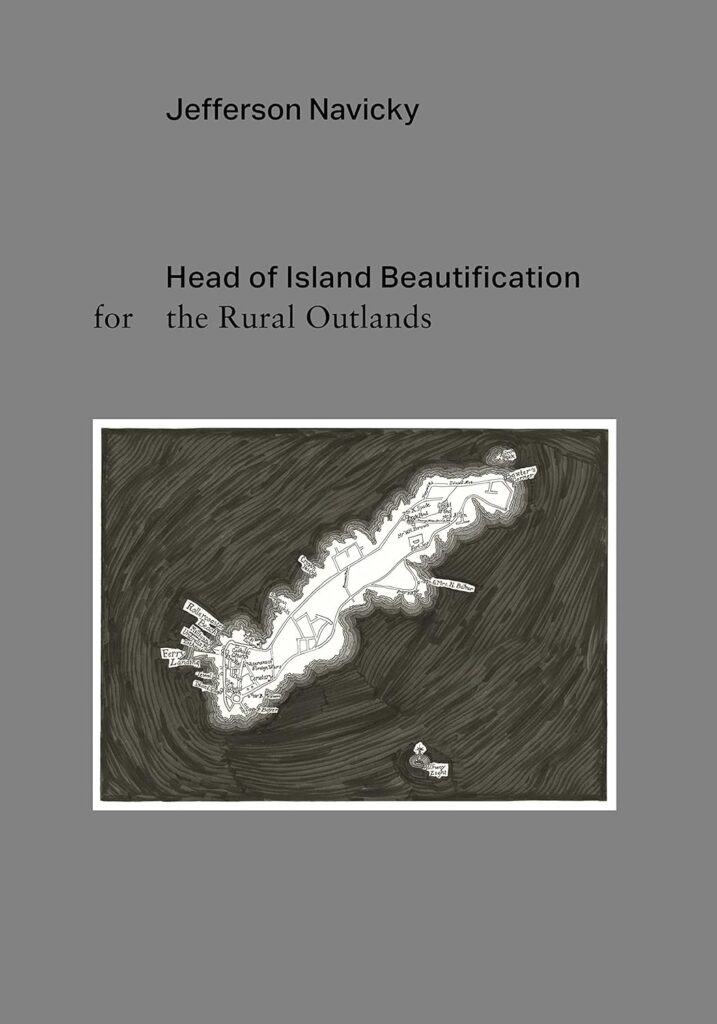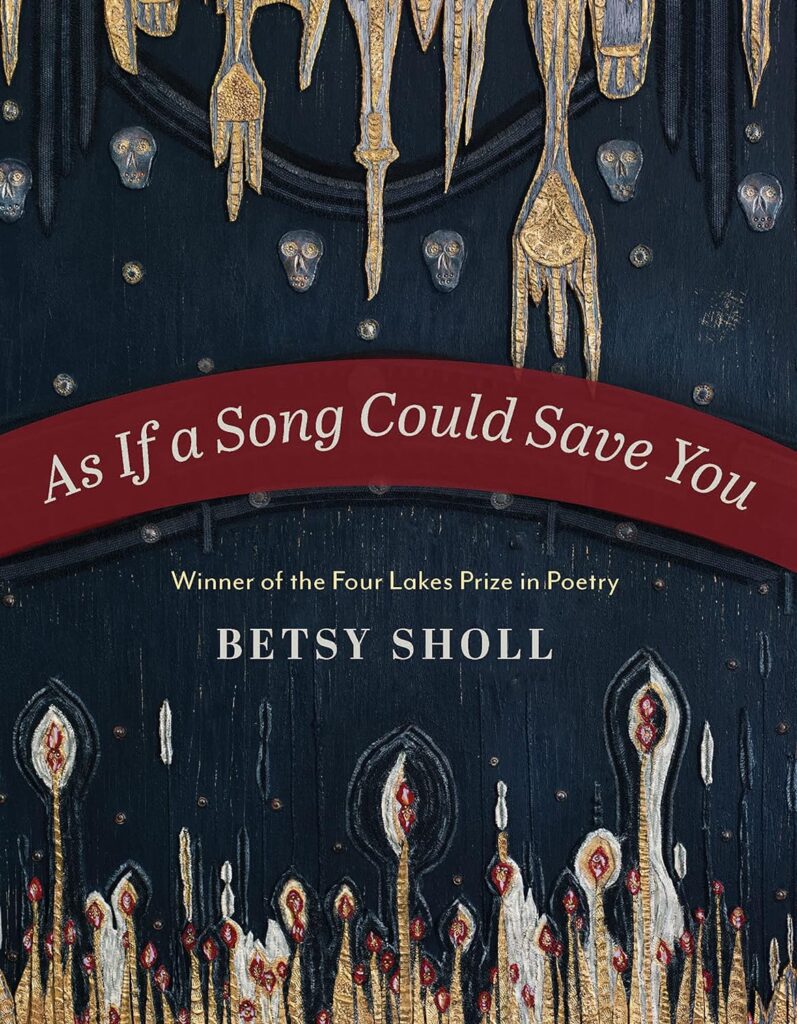Neeli Cherkovski
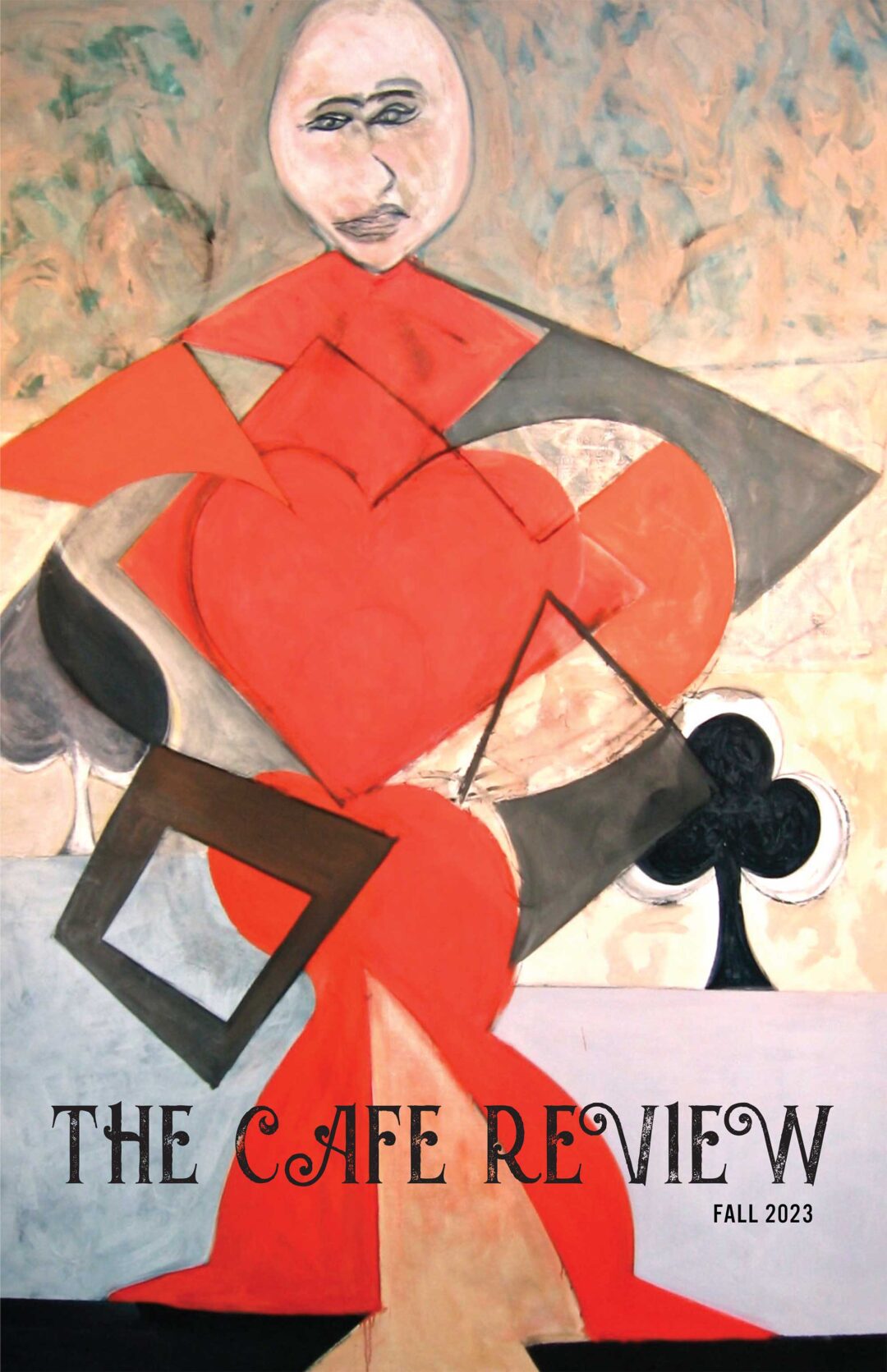
Neeli Cherkovski: is the author of several books of poetry, including From the Canyon Outward (2009), and The Crow and I (2015). He was the coeditor of Anthology of L.A. Poets (with Charles Bukowski) and Cross–Strokes: Poetry between Los Angeles and San Francisco. He also wrote biographies of Lawrence Ferlinghetti and Charles Bukowski, as well as the critical memoir Whitman’s Wild Children (1988). His papers are held at the Bancroft Library, University of California, Berkeley. He has lived in San Francisco since 1974.
Mosab Abu Toha

Mosab Abu Toha: is an award– winning poet who recently graduated from Syracuse University with a masters’ degree in creative writing. His poetry collection Things You May Find Hidden in My Ear: Poems from Gaza, published by City Lights Books in 2022, was a finalist for the National Book Critics Circle Award in Poetry and received the Palestine Book Award in 2022. His poems have been published in Poetry, The Nation, Solstice, The New York Review of Books, among other magazines.
Head of Island Beautification for the Rural Outlands
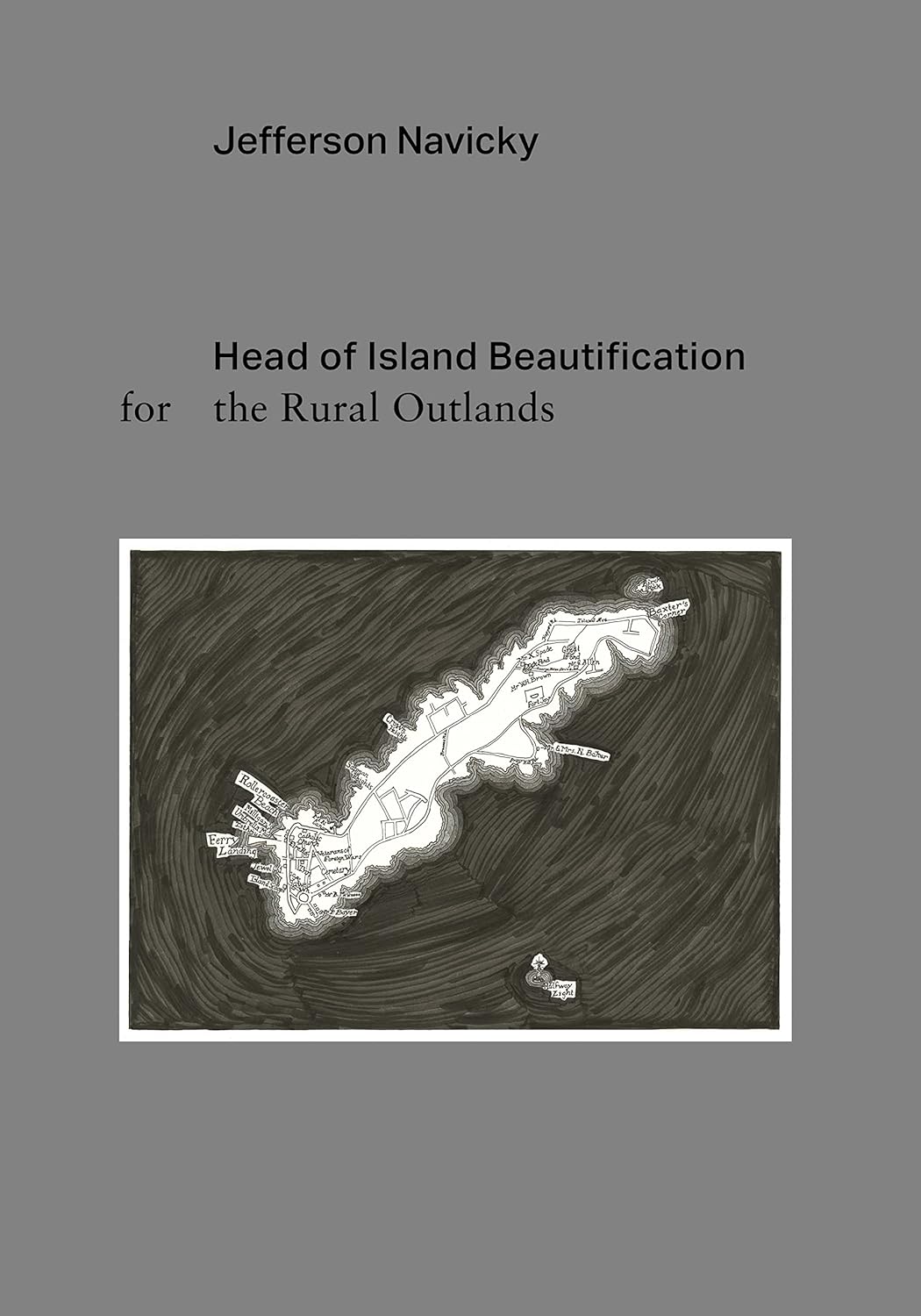
Head of Island Beautification for the Rural Outlands
by Jefferson Navicky
AC Books, 2023,
126 pages, paper, $22.00,
ISBN: 9781939901255
What parts of ourselves haunt our tides and shorelines when our familial ghosts leave? Head of Island Beautification for the Rural Outlands invites us to pull off our masks and no longer cling to our expected shadows. Jefferson Navicky’s hybrid work, written from the perspective of real–life islander William Harrison Brown, amusingly balances fact and fiction. These persona prose poems push us to imperfectly observe and participate in the ancient sounds of ocean life within a backdrop of family secrets and unanswered silences. With grief disguised as a “good sauce,” Navicky bends time between the living and the dead like a crab listening to the hum of her ancestors through her own seaweed–slicked shell.
We are instantly transported to what feels like the séance of Aquaneck Island, where place is coveted as if it is a loved one from a past life sending a message: “The internal ocean is made of dark blue bones, skeletons, jettisoned ghosts, landscapes never seen, never able to be depicted, and the vestiges of breath in a sand–grained manyness of things that cannot be counted.” Here, cemeteries breathe as much as the ocean, and vice versa. Between these chattering teeth above and below sea level, Navicky skillfully weaves dark humor through smirking similes: “As I rowed in and among the cattails that guarded his shore like hot dogs in preparation for a barbeque, I whistled a carefree tune.” This tongue–in–cheek scaffolding is continuously added and removed; ironically, the physical symbol of Brown’s “house on stilts” poses the question of how long must we guard a place before taking action — in altering our direction and our environment’s, in adjusting how much salt we add when telling a certain story?
With P.O. boxes and canvas dimensions peeking between pages, Navicky pushes the idea of an archive to honest, playful, and vulnerable heights — and basements. One of the most intriguing lists, “Diet,” contains sections such as “What I Like & Eat, What I Like to Eat but Don’t, What Makes Me Gag, [and] What Nourishes Me.” Archives of fish chowder, yellow beer, peach jam, brussels sprouts, and “crackers with stinky cheese veined blue” brilliantly nod to class, economic status, efficiency, landscape, and heritage, just like Navicky’s modern forager tribute to the dump, or “the place where all the good stuff gets left.” We are urged to scavenge for the ugly selves we are most fearful of but need to pay attention to: “to archive is the most beautiful act, a gesture of love and memory, both acts of the most intimate forgetting.”
What will rock readers most is Navicky’s humble portrayal of our inaccurate memories, whether that be of parents or who they left us to become. Navicky hauntingly writes of a mask found in an art studio as a “grotesque little thing about the size of the palm of a large hand, and made out of seaweed and coral, shells and the detritus of a living ocean. It was a broken thing. There were some rocks. It was a treasure.” All at once our hidden and obvious selves collide like hexagons in a kaleidoscope, suffering and applauding simultaneously. It almost feels like an artistic statement — our creative bodies as instruments and shields, a reminder that secrets are often the greatest risk to the spirit, for both the dead and the living.
Navicky calls us to look vacancies in the face, however terrified we may be. What dark steps will we purposely choose to climb toward in our uncertain waiting? Whose history will we set the table for, no matter how unsure or mysterious? With lyrical fiction floating between beards, feathers, bathtubs, and walking sticks, Navicky confesses what could be the ultimate ship–in– a–bottle note:
I live in the recurrence of my story, whatever one I manage
to tell. In this way I’m trying to narrate the unnamable, to
become the painter I have never been.
— Amanda Dettmann
As If a Song Could Save You
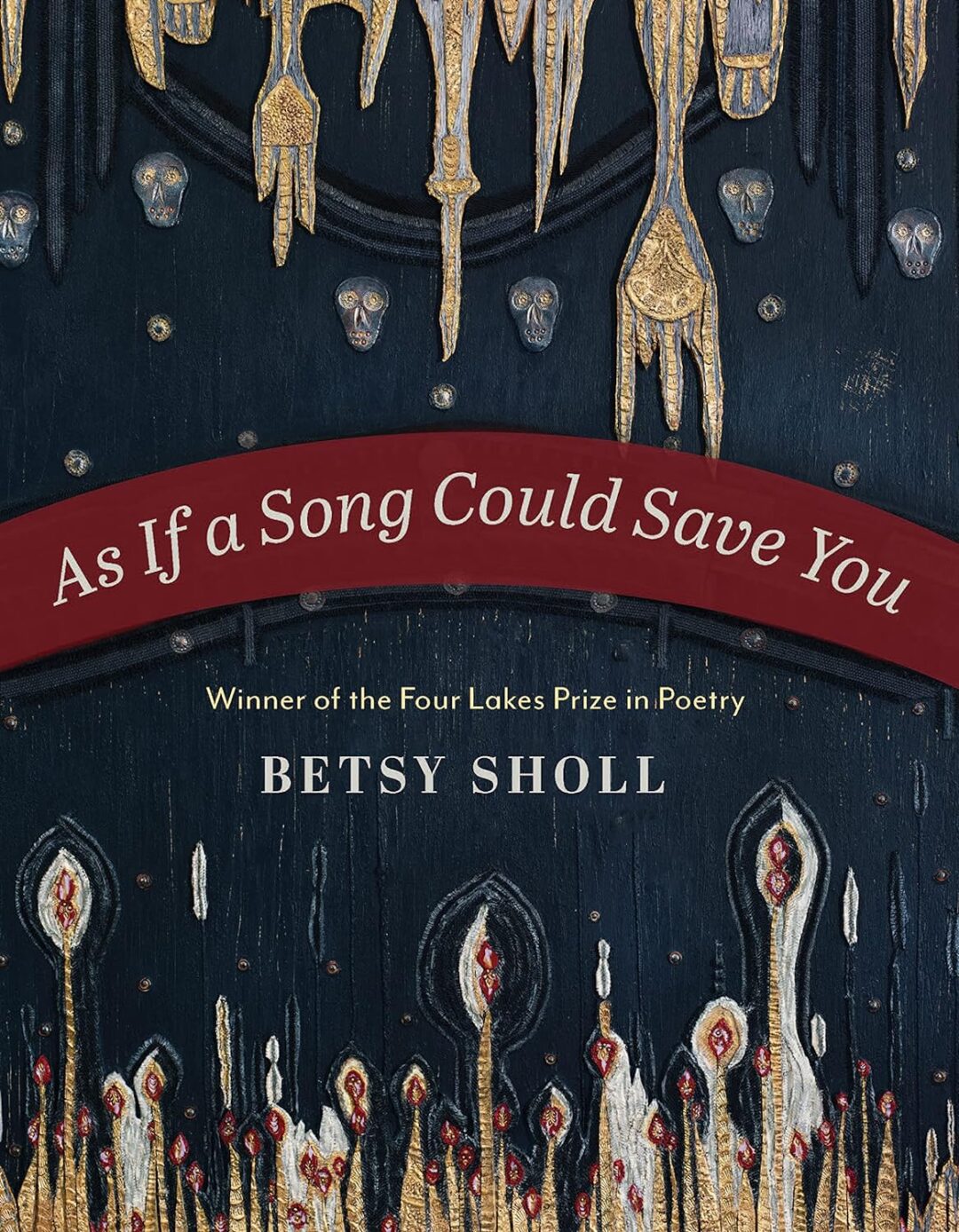
As If a Song Could Save You
by Betsy Sholl
University of Wisconsin Press, 2022,
113 pages, paper, $16.95,
ISBN: 9780299340742
Betsy Sholl’s new book, her 10th, echoes many themes from past works — the connection of family, music (jazz), religion, and the natural world. And yet this book presents a different perspective: it is a reckoning, of sorts.
The book is dedicated to her husband Doug, who passed away during the COVID pandemic, and is presented in four sections. The title comes from a poem called “Bear,” early in the first section, in which, while jogging in New Hampshire, the poet encounters the creature feeding on berries with her cub in tow:
. . . and you’ve been warned:
sing, make a racket, till they shamble off.A barroom ditty comes to mind
all those bottles of beer on the wall, so you singas if a song could save you,
And the song does, in these grappling, emotionally connecting poems, offer a saving grace. There are a lot of recurring characters — Dante, Thelonious Monk, and her sister, alive, from the grave, and back. God and his entourage (Jonah, Job) show up a lot, which is the gut from where a lot of the poet’s grappling and reckoning comes. And all with an underlying percussive musical motif.
The ladder is a recurring image in this collection, especially in the poems “Ladders of Paradise,” and “On Ladders, Mystical and Otherwise.” Rungs of striving, deserving, and falling– off are all met in these places. “On Ladders, Mystical and Otherwise” is the longest poem in the book, comprising five pages and six sections. In section three, the ladder morphs into a chair
. . . up to the shelf where the forbidden sweetness
was hid, my own risk of teeter and fall.some wanting that’s hard to shake off,
hint of pleasure flickering, and that longing
to rise, or raid whatever’s out of reach.
The climb becomes shattering in the fourth part of the book, where the author introduces her husband in his declining state, the aftermath of his passing, and her own personal struggle with the loss. In the last line of the poem “One Step” — which describes the challenges of getting him ready for bed — the poet asks her husband if he needs help buttoning his night shirt:
Do you want help buttoning?
Not yet, he says. Not yet.
And what comes in successive poems is that reckoning, that gut– worn evolution of grief into wanting to live again, albeit with loss.
The next to last poem in the book, “Miserere Mei, Deus,” is the emotional apex of this journey. The song is a setting of Psalm 51 by Italian composer Gregorio Allegri, where the poet finds herself in an air cathedral:
. . . I am willing to toss
myself like bones into the future’s pot,
willing to say, Yes, oh secret heart,
as the sky lightens, Yes, to the mercy
that only comes when misery cries out.
The poem “His Shaving Cuts” concludes the book, as the lost husband suddenly appears in the aftermath of a huge snow storm, as
. . . he stands in the doorway
under the skylight in a freak shine of sun
and he proclaims the day to be a snow day — school’s out — and he heads forth into the white on his cross–country skis:
This is the kind of breaking and entering
I can take. Him stepping into snowshineeven if it so welcomes, so blazes around him
there’s no way back.
And this is the place where grief skates off, where the glass, seen through darkly, finds some life and light at the end.
— Craig Sipe



